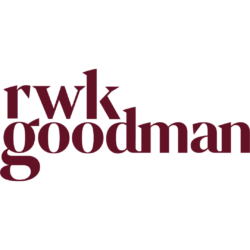The Tipping Act – two months on, what impact has it had on hospitality businesses so far?

Almost two months ago, the Tipping Act came into force in England and Wales in an attempt to ensure fairness and transparency for workers in respect of tips and service charge.
Whilst the new rules are of course beneficial for workers and staff morale, they have also caused an administrative burden as well as increased legal consequences for the hospitality sector, who are already dealing with the impacts of Brexit, the pandemic and the cost of living crisis.
Administrative Burden
One of the most significant impacts for hospitality businesses under the new tipping rules is the increased administrative burden. All employers have had to prepare and implement a written policy on tips, whilst some have had to consult with staff on the new policy or even take steps to change their workers’ employment contracts. The admin does not stop there – it goes without saying that any policy will need to be regularly reviewed to ensure the distribution of tips within the business remains fair and transparent, further increasing the administrative burden for hospitality employers.
As well as this, businesses are required to keep a record of how tips have been paid to staff and must keep these records for three years. Staff can ask to inspect businesses’ tipping records and the business must provide the records within four weeks of the request.
There is also an additional administrative burden for a company’s payroll and finance staff as any tips must be paid no later than the end of the month after the month the tips were received. This means that internal policies and processes will likely need be put into place to ensure that the required timeframe can be met.
Tips can be paid by both cash and card, meaning businesses may need to look at investing in new software to calculate the distribution of tips in accordance with their policy, which will come at a cost. This could present a financial strain for businesses in the hospitality sector that may already be struggling financially.
Staff members can raise grievances if they do not believe that tips are being shared fairly and transparently, to which a business will need to respond in accordance with its policies and procedures. This of course takes management time, and if not dealt with properly, can lead to costly legal disputes.
Whilst the need to undertake these administrative tasks will affect every hospitality business, the impact of such tasks will depend on the size of it; the administrative costs for a small independent coffee shop will be significantly less than large restaurant chains or businesses with many members of staff.
Increased Legal Consequences
As well as requiring businesses to take certain administrative steps to comply with its provisions, the Tipping Act also sets out penalties for employers that do not comply with the rules.
The new rules open the door to greater scrutiny and legal action, as a worker may bring a complaint against their employer to the Employment Tribunal if the business has failed to create a written policy on tips, failed to keep the required tipping records or failed to share tips fairly and transparently in accordance with the rules.
If a complaint is brought and the worker is successful, the Tribunal will be able to award compensation as well as make a public declaration that a particular business does not share tips ‘fairly’ and ‘transparently’. As well as this, all Tribunal judgments are published online and therefore it is important to get things right, not only to avoid bad publicity, but to prevent other workers from seeking to bring similar claims in the event a claim is successful.
RWK Goodman’s employment law specialists can help your business ensure that it is compliant with the Tipping Act by helping you to put into place the required written policy.
RWK Goodman’s employment law specialists can help your business ensure that it is compliant with the Tipping Act by helping you to put into place the required written policy. We can also provide general advice on the new rules and assist you with any queries or disputes that may arise in respect of tips.
For more information please contact Holly Freuchen or David Israel.



